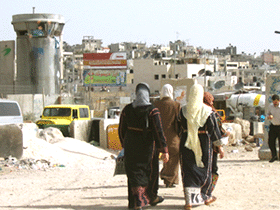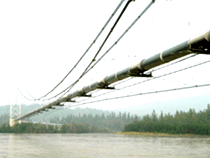
Upton Sinclair’s “The Jungle”: A 100th Anniversary Retrospective
Among the early 20th century muckraking writers, Upton Sinclair had perhaps the most intense immediate impact on

Among the early 20th century muckraking writers, Upton Sinclair had perhaps the most intense immediate impact on


FEMA failed to follow disaster plan
WASHINGTON, DC – More than a year before Hurricane Katrina hit New Orleans, local, state and federal officials held a simulated hurricane drill that Ronald Castleman, then regional director for the Federal Emergency Management Agency (FEMA) called "a very good exercise." More than 1 million residents were "evacuated" in a table-top scenario as 120 mph winds and 20 inches of rain caused widespread flooding that supposedly trapped 300,000 people in the city.



If you are more interested in and disgusted by rumors of civilian "troublemakers" on the streets of New Orleans and other Gulf Coastal communities than in the massive failings of the United States government before, during and since this tragedy began, consider a career in journalism.
The real criminals are sitting in positions of authority: the president, the director of FEMA, and the hundreds of congresspersons cutting their excessive vacations short to pat one another on the back as they pass emergency funding provisions for the hardly-operative relief efforts centered in Louisiana and Mississippi.
Copyright Toward Freedom 2019